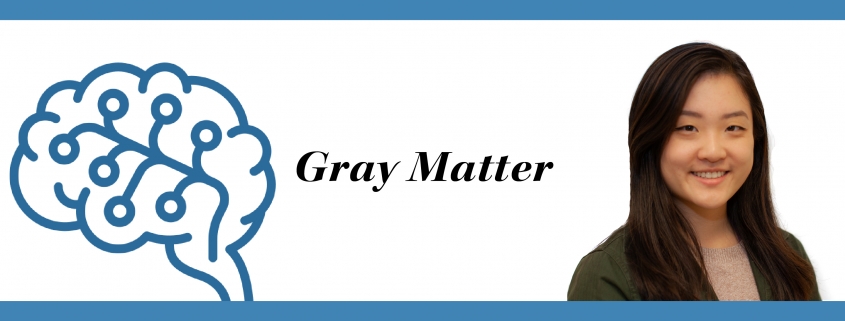Gray Matter: It’s critical to assess impostor syndrome on college campuses

In an address to 300 students at an all-girls school in London two years ago, former First Lady Michelle Obama revealed that while she has an impressive repertoire of achievements, she frequently struggles with feelings of not being good enough. This feeling of inadequacy is known as impostor syndrome, a phenomenon that approximately 70% of people experience at some point in their careers, according to a study in the International Journal of Behavioral Science.
Impostor syndrome was first coined by psychologists Pauline Clance and Suzanne Imes in 1978 to describe the internal sense of fraud they observed in high-achieving women. Today, impostor syndrome is known to be prevalent among a broad population regardless of gender. No matter what they achieve and how much validation they receive, people with impostor syndrome are unable to internalize their success, instead believing it to be undeserved or due to luck. As a result, they experience a persistent fear that they will be exposed as frauds.
Impostor syndrome is especially prevalent in high-achieving environments, and college campuses are no exception. A culture of achievement breeds a toxic environment that discourages students from sharing setbacks and challenges with each other, creating a facade of perfection that exacerbates impostor syndrome.
According to Dr. Roshini Pinto-Powell, a professor and dean at the Geisel School of Medicine at Dartmouth College who frequently meets with students experiencing impostor syndrome, telling students that they are special and that their external achievements — academic awards, athletic feats and so on — got them to where they are is counterproductive. However, this kind of praise is abundant at nearly every university, whether in speeches, posters or everyday conversation. Although the intention is to remind students how remarkable they are, it creates the illusion that everyone is doing well and results in mounting pressure to live up to seemingly impossible ideals.
At its core, impostor syndrome is an identity issue. Each person is intimately acquainted with their own setbacks, and when schools focus solely on successful outcomes and fail to address the challenges along the way, it is easy to compare your own worst moments to everyone else’s best. As students receive constant reminders about the kinds of accomplishments their schools expect of them, those with impostor syndrome experience cognitive dissonance as they struggle to reconcile their own image of themselves with the one set out for them. So, impostor syndrome becomes a very isolating experience.
College is an especially critical period to address impostor syndrome because many students are entering their career fields for the first time. In a survey of 1,000 early-career adults in the United Kingdom, 85% of respondents said they had experienced feelings of inadequacy at work and 70% believed they did not deserve their success. These insecurities are hallmarks of impostor syndrome, yet only a quarter of respondents had heard of the syndrome. The data from this survey reveals that the lack of transparency surrounding impostor syndrome extends well beyond college and continues into the workforce.
Left unchecked, impostor syndrome can manifest in a variety of barriers to everyday life, from poor study habits to serious mental health consequences. For example, according to clinical therapist Carla Lundblade, the cycle of impostor syndrome pushes people to either procrastinate on their responsibilities or spend far too much time tuning it to perfection. Impostor syndrome can spiral into other health problems, including anxiety, depression and elevated levels of the stress hormone cortisol, as Clance and Imes found in the study that established this syndrome.
With these consequences in mind, the first step to mitigating impostor syndrome is to open up discussion surrounding the issue. According to Pinto-Powell, breaking the silence on feelings of self-doubt will not only destigmatize them but also help students realize that it is a mental health issue worth seeking help for.
Pinto-Powell also recommends praising students for the personal traits that led to their success instead of the accomplishments themselves, which reassures students that they have the capability to persevere in the face of difficulty.
We can also do our part in supporting our friends and peers through impostor syndrome. A study from Brigham Young University found that students in an elite academic program who sought support from people outside their major experienced improved outcomes compared to those who reached out to peers within their program. Talking to people of different backgrounds allows students to gain an outside perspective on their accomplishments, providing a reminder of their personal progress as opposed to constantly comparing themselves to others. These findings speak to the importance of cultivating an open, genuine campus culture where students and faculty feel comfortable sharing their experiences and receiving support from one another.
Jessica He is a senior writing about neuroscience. Her column, “Gray Matter,” typically runs every other Wednesday.

